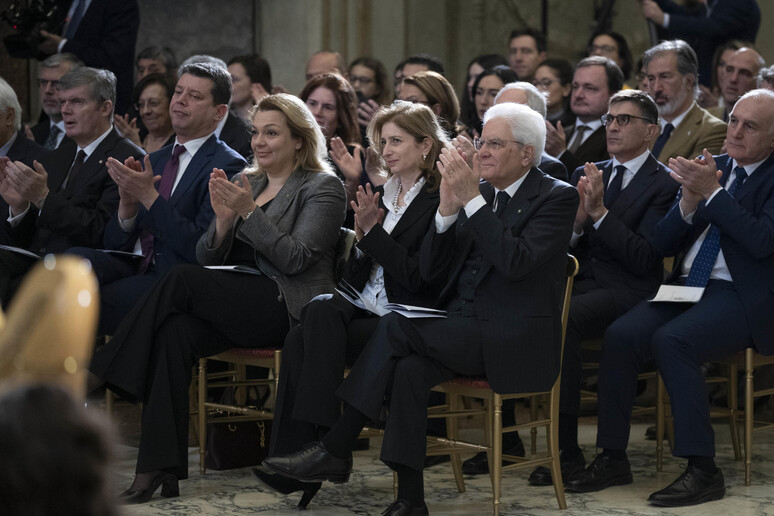The 'foibe' massacres of
Italians by Yugoslav partisans at the end of WWII were a
"national disaster", President Sergio Matteralla said on
national Foibe Remembrance Day.
He urged Italians to keep the memory of them alive as a
warning, and warned against "small pockets of regrettable
militant denialism" by some on the left.
February 10 is the 'National Memorial Day of the Exiles and
Foibe'.
The 'foibe' refers to mass killings mainly in Friuli-Venezia
Giulia , Istria and Dalmatia during and after World War II
against the local Italian population.
Foibe are narrow Carsic pits or gorges into which victims
were thrown, sometimes alive.
As many as 15,000 Italians were tortured or killed by
Yugoslav communists who occupied the Istrian peninsula during
the last two years of the war.
Many of the victims were thrown into the narrow mountain
gorges during anti-Fascist uprisings in the area and the exact
number of victims of these atrocities is unknown, in part
because Tito's forces destroyed local population records to
cover up their crimes.
"Today the real adversary to be fought, the strongest and
most insidious one, is the indifference that often feeds on the
lack of knowledge."
The importance of the president's warning was highlighted by
news that two plaques to the memory of Foibe victims had been
defaced and damaged in Massa Cararra on the north Tuscan coast.
The vandalism was decided by parties across he political
spectrum.
Rightwing and centre-right parties campaign hard to get Foibe
remembrance day set up, saying that the tragedy had been swept
under the carpet by anti-Fascists in the postwar years.
Mattarella attended a commemorative concert at the
presidential palace Sunday, on the eve of Foibe Day, and met
representatives of the families of those driven out of Istria
and Dalmatia by Tito.
ALL RIGHTS RESERVED © Copyright ANSA











